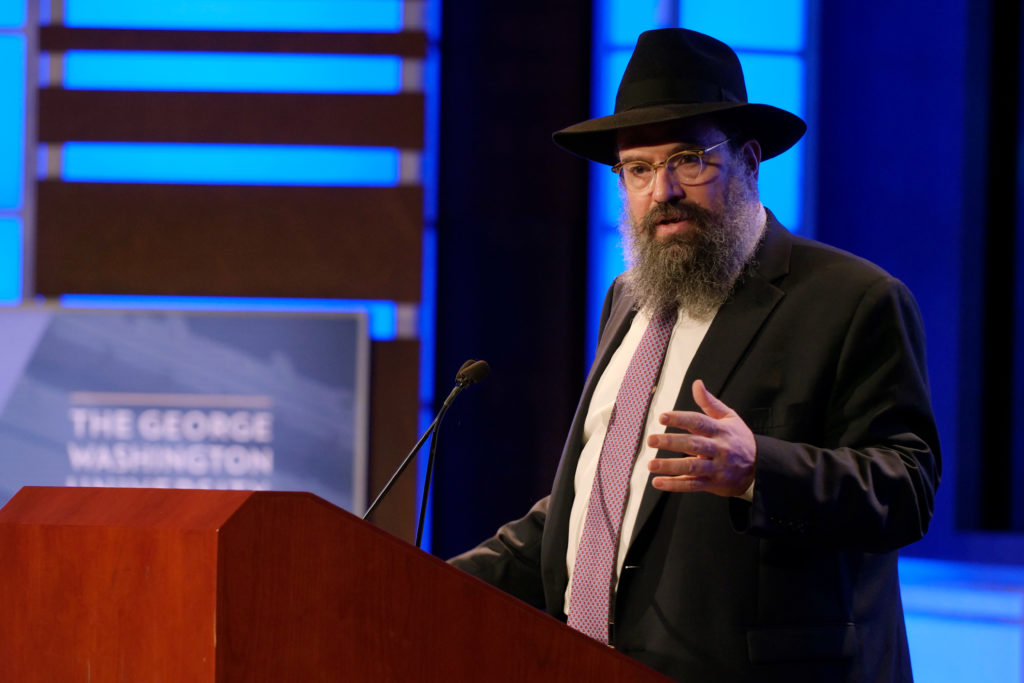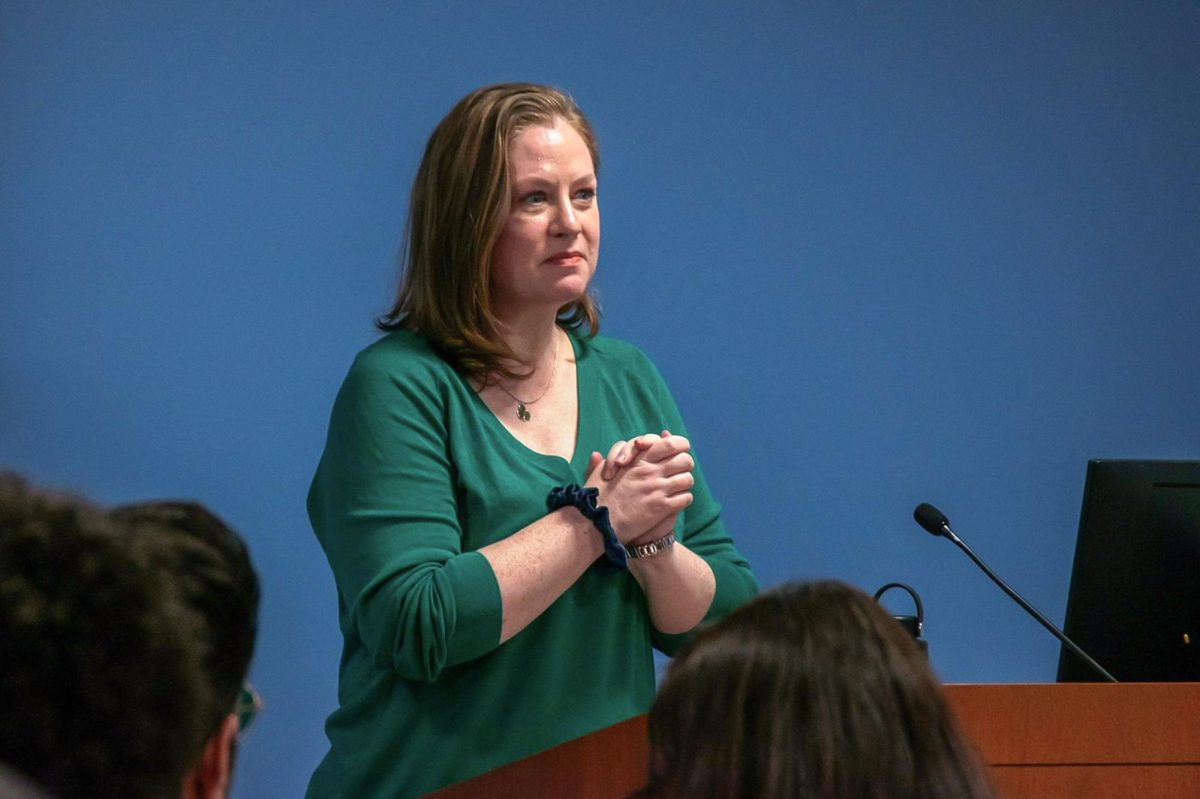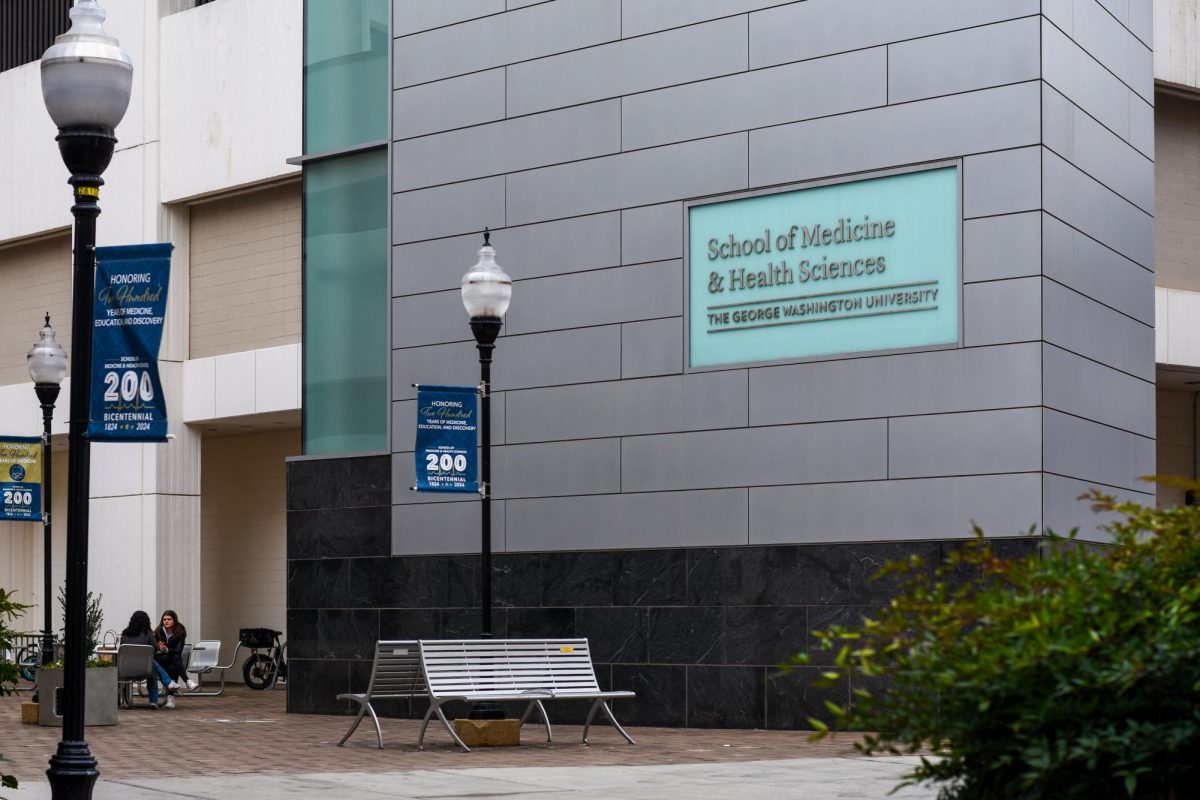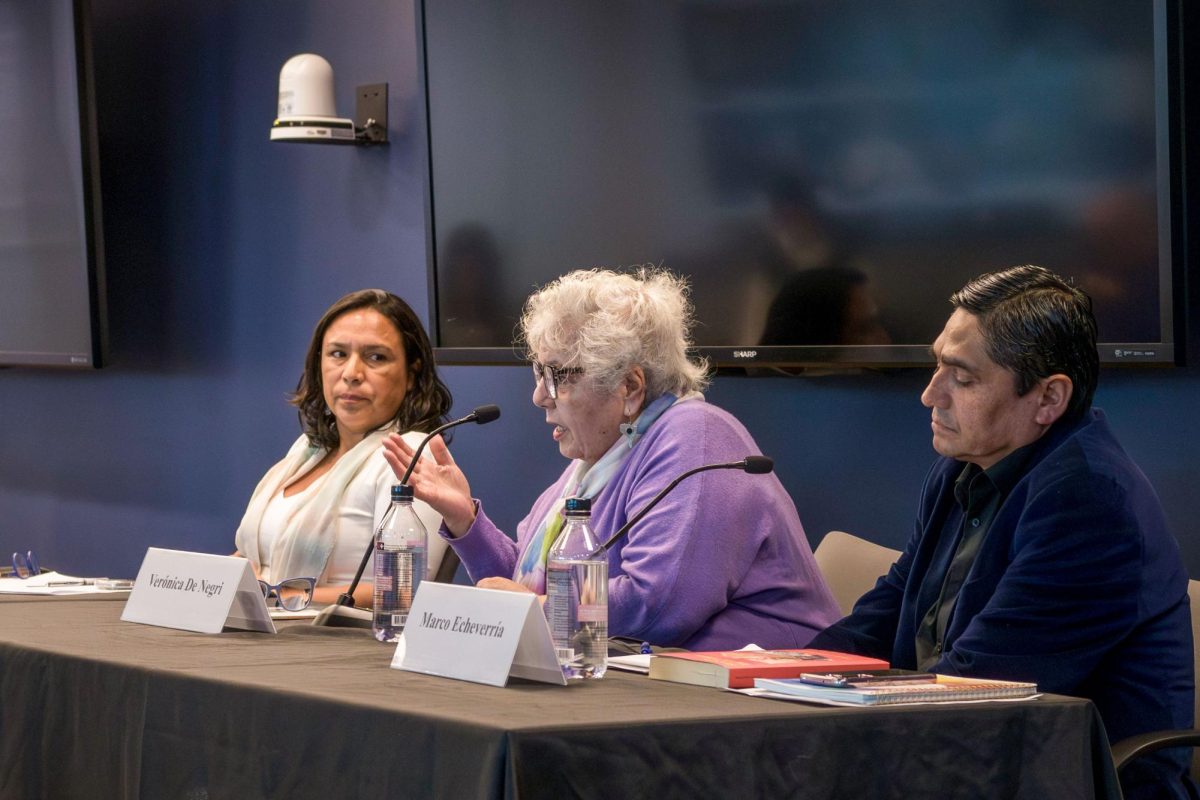Updated: Oct. 28, 2021 at 2:18 p.m.
Current and former federal officials talked about the recent uptick in antisemitism on college campuses at the Jack Morton Auditorium Wednesday.
The officials – including two U.S. representative, a senator and officials from the administrations of former presidents Barack Obama and Donald Trump – discussed legislative efforts to deter antisemitic harassment through the House of Representatives Bipartisan Task Force for Combating Antisemitism and advised students on how they can prevent antisemitism on campus. About 180 people attended the event, which was hosted by GW Chabad and moderated by Nechama Shemtov, the group’s co-director.
Shir Levy, a senior majoring in international affairs and economics, opened the event presenting statistics on antisemitism, noting that 50 percent of Jewish college students experienced antisemitic attacks in 2020. She said that while at GW, she was verbally attacked for speaking Hebrew in public, and her mezuzah — an encased Hebrew scripture traditionally hung on doors — was torn down from the door of her residence hall room during her freshman year.
She said dismissing antisemitic experiences can escalate harassment against Jewish people.
“I have peers who tell me that they are afraid of wearing the star of David around their necks,” she said.
University President Thomas LeBlanc emphasized the University’s “inclusive and welcoming community” at the event, and he announced that GW Hillel will soon distribute a survey to gain a better perspective on Jewish student life on campus.
“I want to be clear that in this community, we condemn hatred and antisemitism in all of its forms,” he said. “They are antithetical to the community we are building here and of fostering a welcoming and supportive environment for all members of our community.”
Rep. Ted Deutch, D-Fla. and the co-chair of the House antisemitism task force, said he is a “proud Zionist.” He said those who reject “Jewish self-determination” in Israel — the right of Jewish Israelis to manage their own political and religious affairs – pose challenges to Jewish people overall.
“When there is antisemitism that is present, it suggests much greater problems,” he said. “This has been true throughout history.”
Rep. Chris Smith, R-N.J. and the other co-chair of the task force, said antisemitism had been prevalent throughout history, including during the period of Soviet communism. He said the communist party contradicted its own policies on Jewish citizenship because of its atheistic values – officials didn’t want Jewish people in the country but also didn’t want them to leave.
Smith said he spoke with a chief rabbi in Berlin whose own Jewish congregation was afraid to publicly identify themselves as Jewish men and women because of antisemitic policies of the time.
“This increase in violence is a chilling reminder that our world still harbors a dangerous collection of bigots and racists who hate Jews,” he said.
Levi Shemtov – the vice president of American Friends of Lubavitch, a national organization supporting the Chabad-Lubavitch movement – said antisemitism is often a precursor to other forms of intolerance. He said non-Jewish people should denounce antisemitism when they see it, and despite the rise in antisemitism, Jews should continue to believe in their faith.
“The most powerful answer to antisemitism is a robust, energetic and reinforced semitism,” Shemtov said. “If we don’t know who we are and what we are supposed to be and do, how can we possibly defend ourselves against those who seek to destroy us?”
Ira Forman, the U.S. State Department’s special envoy for monitoring and combating antisemitism during Obama’s administration, said the rise in antisemitism is also prevalent in other Jewish communities that are under greater threat across the world. He said antisemitism, tolerated by national governments like those in Hungary and Poland, has been most damaging because politicians have used antisemitism to their political advantage.
He said there are never enough resources to combat antisemitism globally, so nations must decide which issues associated with antisemitism to prioritize.
“When you instrumentalize antisemitism, it is a danger,” Forman said.
Elan Carr, the state department’s special envoy for monitoring and combating antisemitism during Trump’s administration, said students should be proud of their Jewish identities and recognize the definition of antisemitism, set by the International Holocaust Remembrance Alliance – an intergovernmental organization that advances education on the Holocaust.
“Antisemitism is a certain perception of Jews, which may be expressed as hatred toward Jews,” the group’s definition states. “Rhetorical and physical manifestations of antisemitism are directed toward Jewish or non-Jewish individuals and/or their property, toward Jewish community institutions and religious facilities.”
Carr said students can also direct others to register student voters who could vote against the boycott, divestment and sanctions movement, which promotes economic sanctions on Israel and boycotting Israeli goods.
“You can’t tell the story of this country without talking about Jewish values that are shining everywhere – you look from the Declaration of Independence to this present day in terms of how ordinary Americans define the American mission to the world,” he said.
Sen. Jacky Rosen, D-Nev., said she co-founded the Senate Bipartisan Task Force for Combating Anti-Semitism in 2019 and introduced a bipartisan resolution earlier this year condemning antisemitic incidents in America. She said most young Americans don’t have basic knowledge of the Holocaust, so expanding opportunities to learn more about its history is central in the fight against antisemitism.
“If we’re going to prevent and combat antisemitism and other hateful acts, we must increase awareness and understanding so that we can stand together united and make clear that we will not sit idly by in the face of hatred and bigotry,” Rosen said in a pre-recorded video at the event.
This post was updated to correct the following:
The Hatchet incorrectly reported that one U.S. representative was featured on the panel. The panel included two U.S. representatives. The Hatchet reported that 70 people attended the discussion. Event organizers said closer to 180 people were seen in the auditorium. The Hatchet also attributed Levi Shemtov’s statements to Nechama Shemtov. The correct speakers are now identified. We regret these errors.








